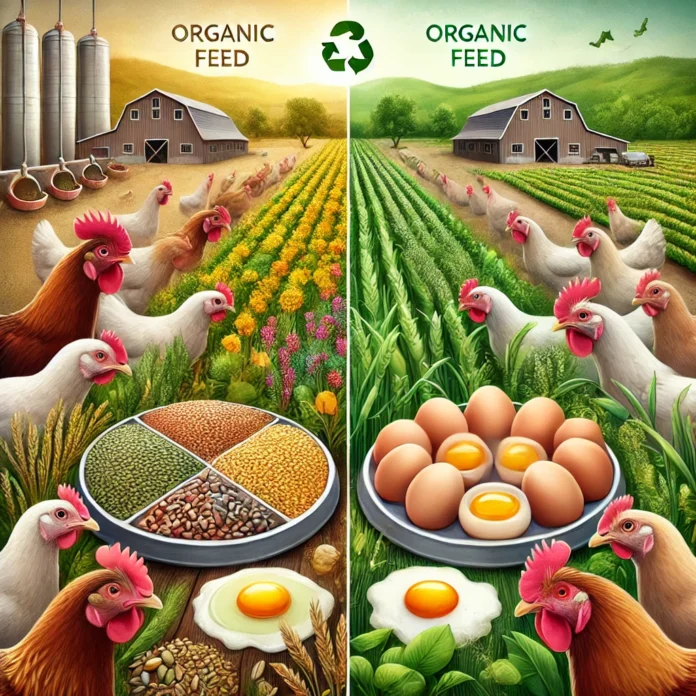The quality of organic eggs is determined by the chicken feed, as it affects how nutritious and flavourful an egg may be. The quality of feed might be the deciding factor that separates organic eggs from natural ones, which pertain to health aspects as well as flavor. In this post, we will be looking at how chicken feed impacts the quality of organic eggs and why that matters for consumers who are searching out healthy, sustainable eats.
Basic Nutrition Organic feed is a combination of grains, legumes, and other natural materials free from pesticides and chemical fertilizers. The omega-3 fatty acid, vitamin, and mineral levels of eggs increase as a result of the corn, barley, soybeans, and flaxseeds found in organic feed. In contrast with traditional feed, it goes without saying that conventional feed can contain synthetic additives and growth hormones. The normal feeding combines to provide eggs that are chock-full of nutrients.
Egg Flavor While the taste of organic eggs differs, it has a lot to do with how healthy the feed is for hens. If you feed your chickens this natural protein feed, the yolks will have a unique and wonderful flavor that is so different from ordinary pale yellow-colored store-bought eggs. This is one of the reasons why consumers prefer organic eggs over conventional ones, as it enhances taste.
Organic Chicken Feed for Poultry Welfare and Egg Quality Not only does it improve the quality of egg production, but it also greatly considers poultry welfare. Chickens that receive organic feed and are brought up in natural, hazard-free environments tend to remain more wholesome (i.e., a healthier life results in enhanced egg quality). The importance of poultry welfare in organic egg production links welfare directly to the quality of eggs.
One of the other benefits is that organic farming practices are more sustainable and have a lower environmental impact than conventional farming. The organic feed avoids harmful inputs, reduces dependence on hazardous chemicals, and benefits soil quality, water resources, and biodiversity. In addition to being a healthier choice of egg, organic eggs are also environmentally sustainable.
One of the most important components that make up organic eggs, alongside nutrition, flavor, and poultry welfare, is directly related to chicken feed. By choosing organic eggs, not only are you getting more healthful eggs, but you are also supporting sustainable farming practices that properly respect the environment and life.affects the quality of organic eggs in terms of nutrition, flavor, and poultry welfare. Choosing organic eggs means you are not only getting eggs rich in health benefits but also supporting sustainable farming practices that respect the environment and animal rights.



































